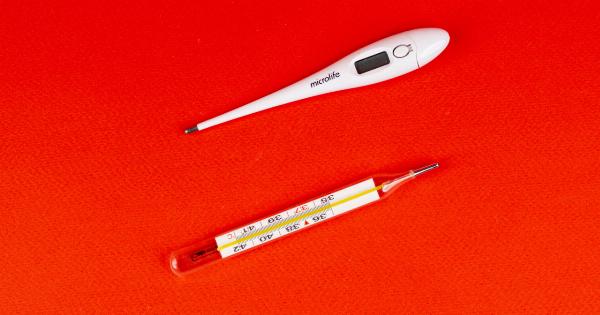Expiry dates on food products serve as crucial indicators of their freshness and safety for consumption. These dates are carefully determined by manufacturers following rigorous testing and analysis.
Failure to adhere to these dates can lead to a variety of health risks, including food poisoning and other foodborne illnesses. It is essential to understand the potential dangers associated with consuming expired foods and the consequences it can have on your well-being.
The Risks of Consuming Expired Foods
1. Nutritional Value: Over time, the nutritional value of food deteriorates. Consuming expired foods means you are likely missing out on key nutrients that are vital for your body to function at its best.
2. Foodborne Illnesses: The main concern with expired foods lies in the potential growth and proliferation of harmful bacteria, such as Salmonella and E. coli.
These bacteria can cause severe food poisoning symptoms, such as nausea, vomiting, diarrhea, and in extreme cases, even organ failure or death.
3. Mold Contamination: Expired foods are more prone to developing mold, which can release toxic compounds known as mycotoxins.
Ingesting these mycotoxins can lead to a variety of health issues, including allergic reactions, respiratory problems, and even cancer in some cases.
4. Quality and Taste: Expired foods often lose their quality and taste. They can develop off-putting smells and flavors, making the eating experience unpleasant and potentially causing digestive discomfort.
Understanding Food Expiration Dates
1. “Use By” Date: This date indicates the last day recommended by the manufacturer for consuming the product at its peak quality. It is important to strictly adhere to this date to ensure the highest level of freshness and safety.
2. “Best Before” Date: This date is often found on non-perishable food items. It suggests that the product may not be at its optimal quality after this date but can still be consumed safely.
However, it is always advisable to use your judgment and inspect the product before consuming it.
3. “Sell By” Date: This date is primarily intended for retailers, indicating the last day the product should be displayed for sale. Consumers can still consume the product after the “sell by” date if it has been stored properly.
However, caution should be exercised, and the quality should be assessed before consumption.
Proper Food Handling Practices
To ensure food safety and prevent the consumption of expired foods, it is crucial to follow proper food handling practices. Here are some key guidelines:.
1. Check Expiry Dates: Always check the expiry dates of food products before purchasing or consuming them. Avoid buying items with short shelf lives if you know you won’t be able to consume them in time.
2. Proper Storage: Store perishable items, such as meat, dairy, and fruits, in the refrigerator at appropriate temperatures. This slows down bacterial growth and helps maintain the freshness of the food for longer.
3. First In, First Out (FIFO): When storing food items, follow the FIFO principle, which means using older products before newer ones. This ensures that food doesn’t expire while stored in your pantry or refrigerator.
4. Inspect Food Before Consuming: Before eating, carefully inspect the product for any signs of spoilage, such as an unusual texture, discoloration, or foul odor. If you notice any of these signs, discard the item immediately.
5. Properly Reheating Leftovers: If you have leftovers, ensure they are reheated thoroughly at a high temperature to kill any potential bacteria that may have grown after the initial cooking.
The Dangers of Ignoring Expiry Dates
Ignoring expiry dates and consuming expired foods can have severe consequences for your health. Some of the dangers associated with this practice are:.
1. Food Poisoning: Expired foods may contain harmful bacteria that can cause food poisoning. Symptoms include vomiting, diarrhea, abdominal pain, and fever, potentially leading to dehydration and hospitalization.
2. Allergic Reactions: Expired foods, especially those that develop mold, can trigger allergic reactions in sensitive individuals.
These reactions could range from mild skin irritations to severe anaphylactic shock, which requires immediate medical attention.
3. Gastrointestinal Issues: Consuming expired foods can result in various gastrointestinal issues like bloating, stomach cramps, and indigestion. These discomforts can last for hours or even days, disrupting your daily routine.
4. Organ Damage: In some cases, consuming expired foods can lead to severe organ damage. Organ failure, particularly affecting the liver and kidneys, can occur when toxic substances are present in spoiled or expired foods.
Food Safety Myths
1. Myth: You can tell if a food is safe to eat just by its appearance or smell.
Fact: While unusual appearances and odors are signs of potential spoilage, they cannot guarantee the safety of the food. Harmful bacteria may not always produce obvious indicators, making it essential to rely on expiry dates.
2. Myth: Freezing food extends its expiry date indefinitely.
Fact: Freezing can significantly prolong the shelf life of certain foods, but it doesn’t make them last forever. Freezing slows down bacterial growth, but it won’t reverse any deterioration that may have already occurred.
3. Myth: Expired foods are safe to eat if cooked at high temperatures.
Fact: Cooking expired foods may kill some bacteria, but it doesn’t eliminate the risk entirely. The toxins produced by bacteria may still be present and can cause foodborne illnesses, even if the food is cooked thoroughly.
Conclusion
Consuming expired foods can have serious consequences on your health, ranging from food poisoning to organ damage. It is vital to prioritize food safety, adhere to expiry dates, and practice proper food handling and storage techniques.
By doing so, you can protect yourself and your loved ones from unnecessary health risks associated with consuming expired foods.






























